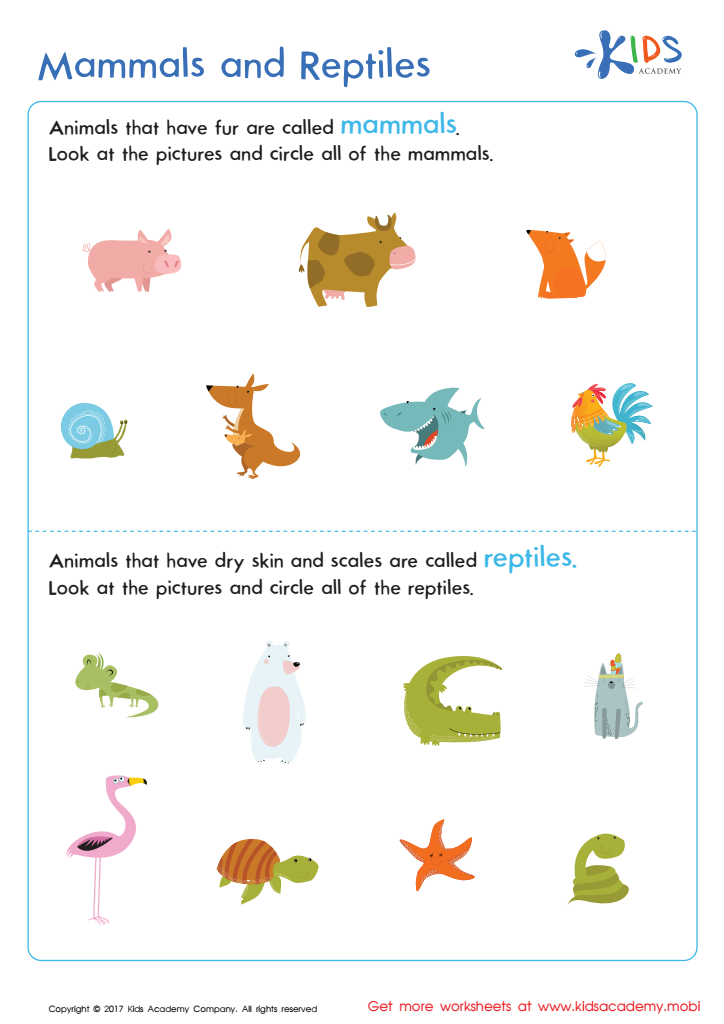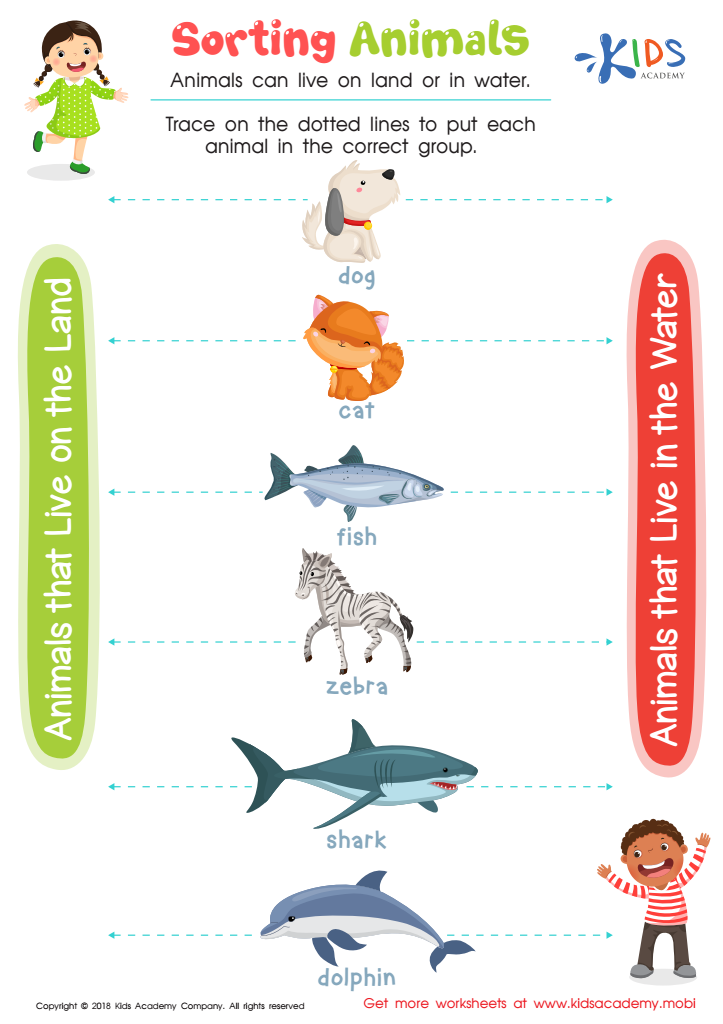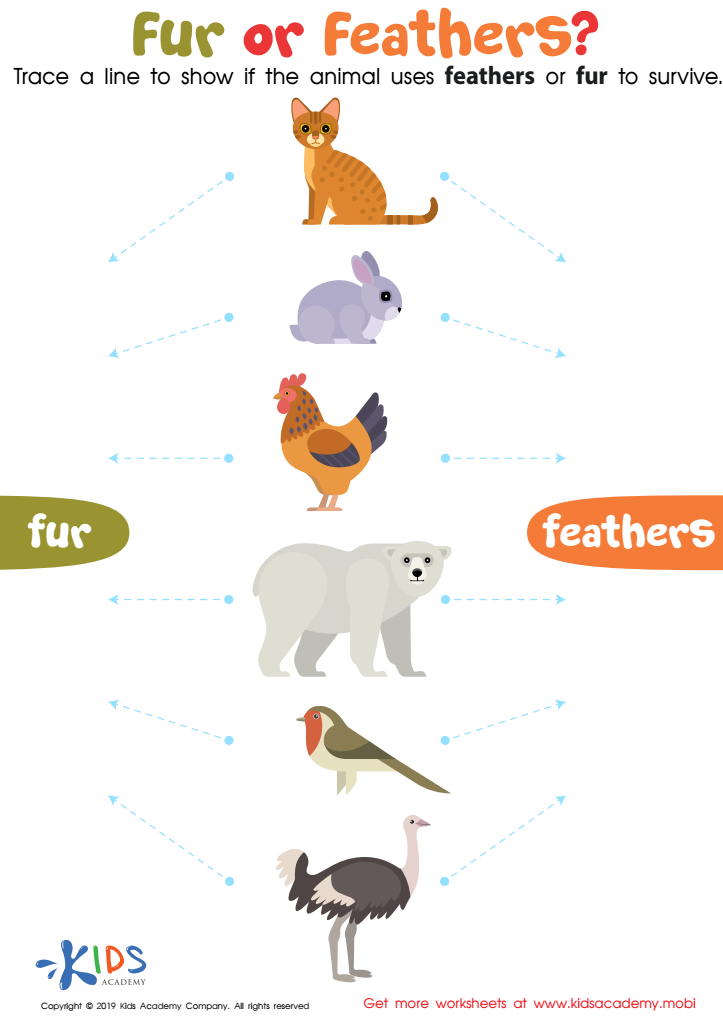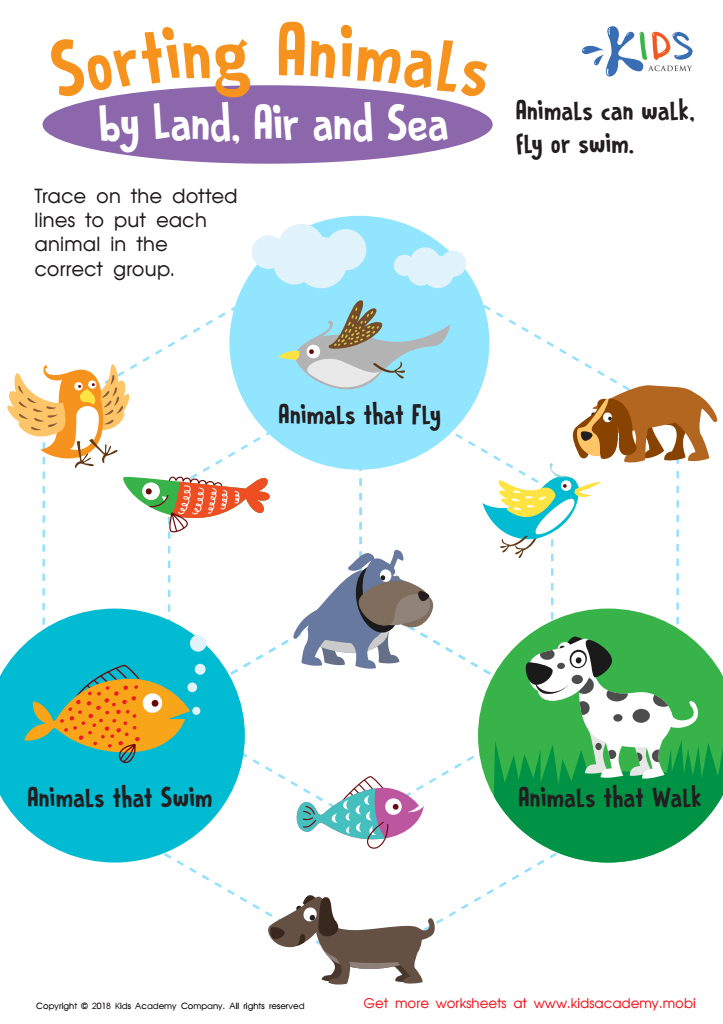Animal Classification Normal Animals Worksheets for Ages 4-5
4 filtered results
-
From - To
Discover engaging "Animal Classification" worksheets designed for children ages 4-5. These vibrant, printable resources make learning about different animal groups fun and interactive. Children will enjoy sorting and classifying animals while enhancing their understanding of various species and honing their critical thinking skills. The worksheets focus on mammals, birds, fish, and more, helping young learners identify key characteristics and differences. Perfect for early grade teachers, homeschoolers, and parents, these worksheets provide a solid foundation in animal science, encouraging curiosity and a love for nature. Foster early scientific exploration with these expertly crafted activities!


Mammals and Reptiles Worksheet


Sorting Animals Worksheet


Fur or Feathers? Worksheet


Sorting Animals by Land, Air and Sea Worksheet
Parents and teachers have a critical role in nurturing early learning, making it vital to engage children ages 4-5 with concepts like animal classification. Introducing young learners to 'normal animals' and their classification taps into children’s inherent curiosity about the world around them. This foundational knowledge helps kids organize and understand their environment.
By learning about different animals and their categories — such as mammals, birds, reptiles, amphibians, and fish — children practice critical skills like observation, comparison, and categorization. These skills are essential not only in science but across all educational areas. Teaching animal classification also enhances vocabulary and language development. Terms like "feathers," "scales," "warm-blooded," and "cold-blooded" enrich children's descriptive language capabilities and improve communication skills.
Additionally, understanding the differences and similarities among animals fosters empathy and awareness for living creatures, planting early seeds of environmental stewardship. Stories and activities about animals can spark a lifelong love for nature, sciences, and learning in general. Overall, animal classification for young children is about building a scaffold for future educational success, promoting cognitive development, and nurturing a compassionate and curious mindset toward the natural world.

 Assign to My Students
Assign to My Students




















